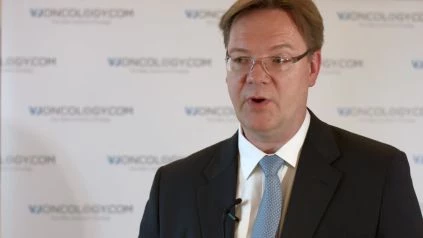Robert Andtbacka, MD, CM of the Huntsman Cancer Institute, Salt Lake City, UT talks about neoadjuvant studies at the 2016 World Congress on Cancers of the Skin (WCCS) and the Congress of the European Association of Dermato-Oncology (EADO) in Vienna, Austria. Prof. Andtbacka explains that between 3-10% of patients with melanoma will develop in-transit disease or recurrent diease. If it is just one or two small lesions, surgery is still the main treatment and the in transit lesions will be resected out. However, as the risk of recurrent disease is very high, mechanisms have been looked at to try and prevent it from occuring. He explains that one of these mechanisms is by doing neoadjuvant studies – studies done prior to surgery to try and activate the patients immune system to prevent the melanoma from recurring. One method used to achieve this is by using oncolytic viruses. We know this through the OPTIM study, the Phase III randomized clinical trial in which T-VEC was used. In this study, there was a decrease in the risk of patients from developing visceral metastases. The OPTIM study was carried out in patients who had unresectable disease. However, they are now looking into whether they can do this in patients with resectable disease by carrying out the treatment before surgery to try and activate the immune system. There is currently a randomized clinical trial in progress in which patients are randomized to receive surgery upfront versus to receive T-VEC for three months before undergoing the surgery. Prof. Andtbacka believes that this a new way to try and activate the patients immune system to prevent the melanoma from returning and therefore an advance in the field of melanoma.
The use of neoadjuvant studies to prevent melanoma from recurring “

